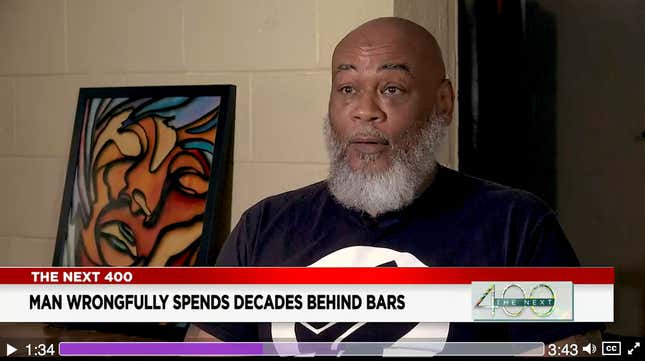
Black men make up 47 percent of exonerations while only accounting for 13 percent of the US population, per the Equal Justice Initiative. Charles Jackson was one of them. He was 27 when he was sent to prison for a crime he did not commit. When he returned an innocent man two decades later, his daughter was the same age.
In 1991, Jackson was falsely identified in connection to a shooting, according to Cleveland19 News. He maintained his innocence and fought his way out the justice system. Now, after four years of being free, he’s suing the city of Cleveland and the officers who arrested him for compensation.
Jackson said he grew up in a poor and crime-risk area on the east side of Cleveland. He told Cleveland19 he turned to dealing drugs as a means to survive but one thing he said he wasn’t capable of was murder. A witness to a murder in April 1991 said the shooter was within Jackson’s neighborhood and identified the vehicle as a 1978 or 79 Monte Carlo.
They also identified Jackson as the killer.
More on the case from Cleveland19 News:
Investigators had made a recent traffic stop with a car resembling that one, suspecting the driver of carrying drugs but found none in the car.
They still took a picture of the driver, who was Jackson, and showed it to the witness who falsely identified him. Weeks later, Jackson was arrested.
“I feel the officers and the police whoever involved with me being wrongfully convicted felt like I wasn’t worth being in the streets,” Jackson said. “Whatever they thought I was doing they must have thought I didn’t matter.”
You’ve heard this story before. A Black man gets mistaken for another Black man because he’s Black and ends up with a wrongful conviction. The Ohio Innocence Project took initiative to step in and help with Jackson’s case. Pierce Reed, from the project, said Jackson’s wrongful conviction was a result of racial bias and stereotyping in policing.
Jackson agreed with that notion, saying police often make the mistake of wrongfully arresting a Black person. However, they don’t take accountability.
“They don’t think they make mistakes and, in my case, they made a mistake and it’s obvious. They still don’t believe that they did anything wrong,” said Jackson via Cleveland19. To this day, no one has accepted their fault in the wrongdoing of this case.
Jackson said he had never experienced anything like what he had in the brutal conditions of that Ohio prison. But now, he is home and recovering from the trauma he endured. “Everything is different, people change and even your family members you don’t know people you’re just a stranger now and it’s just hard,” Jackson said.

